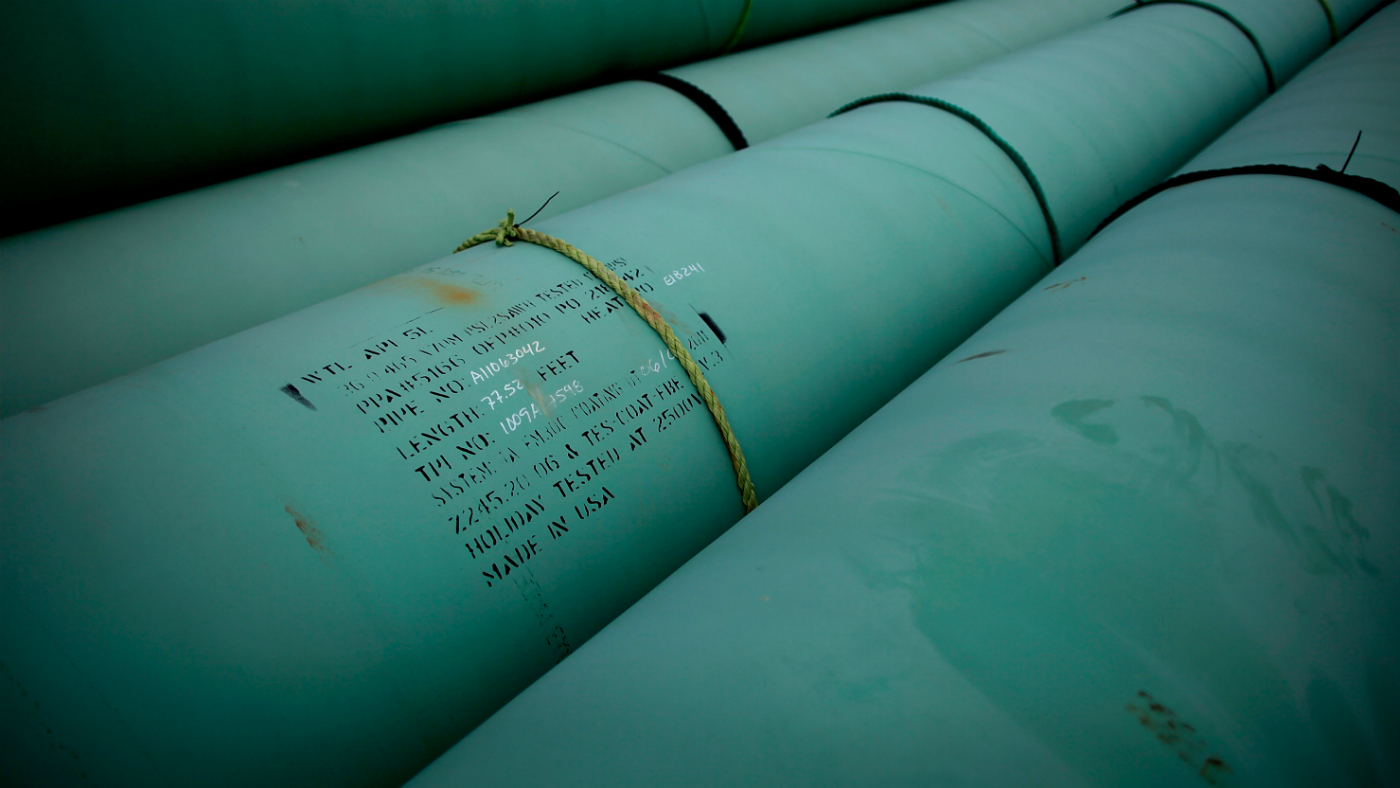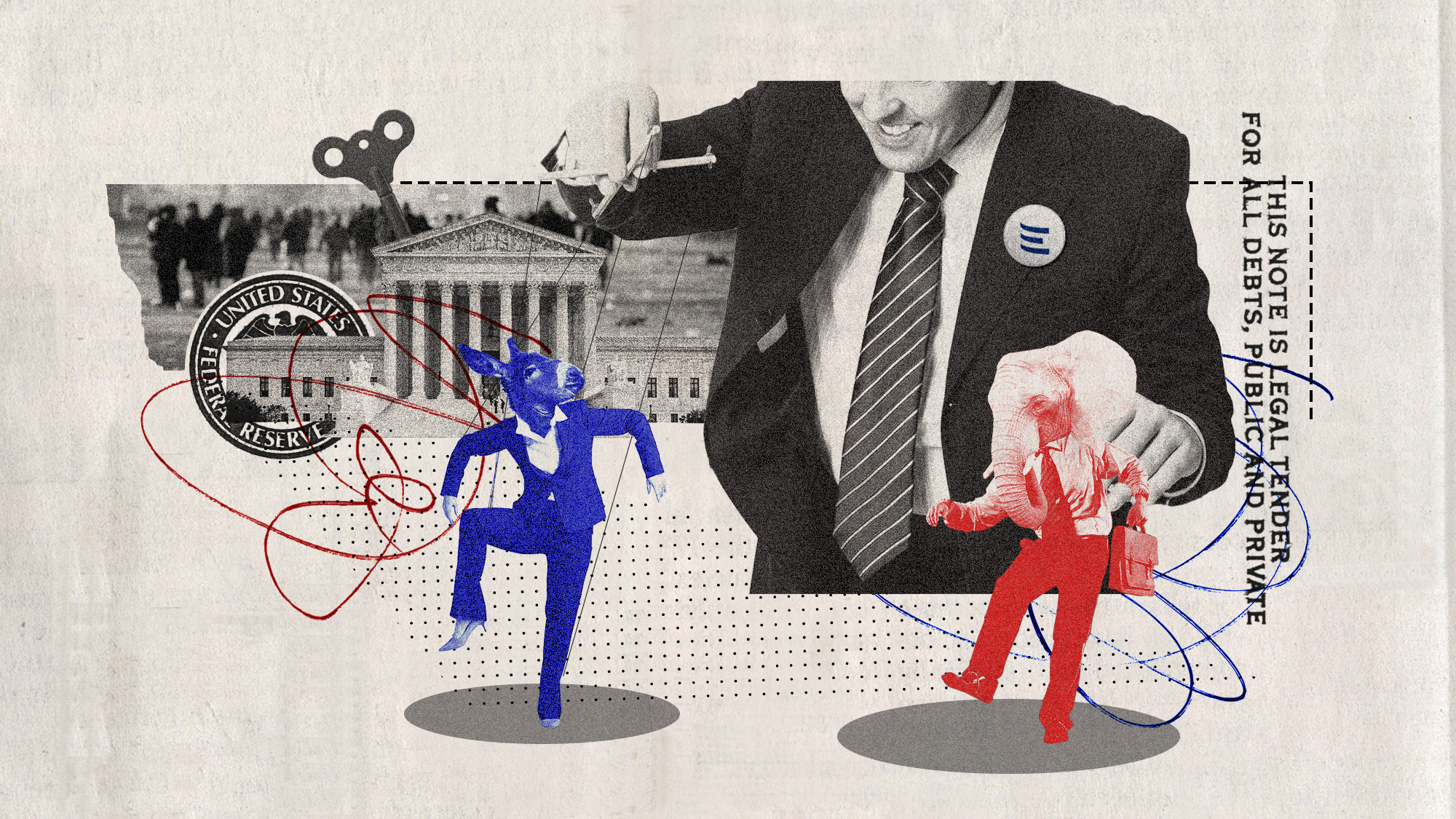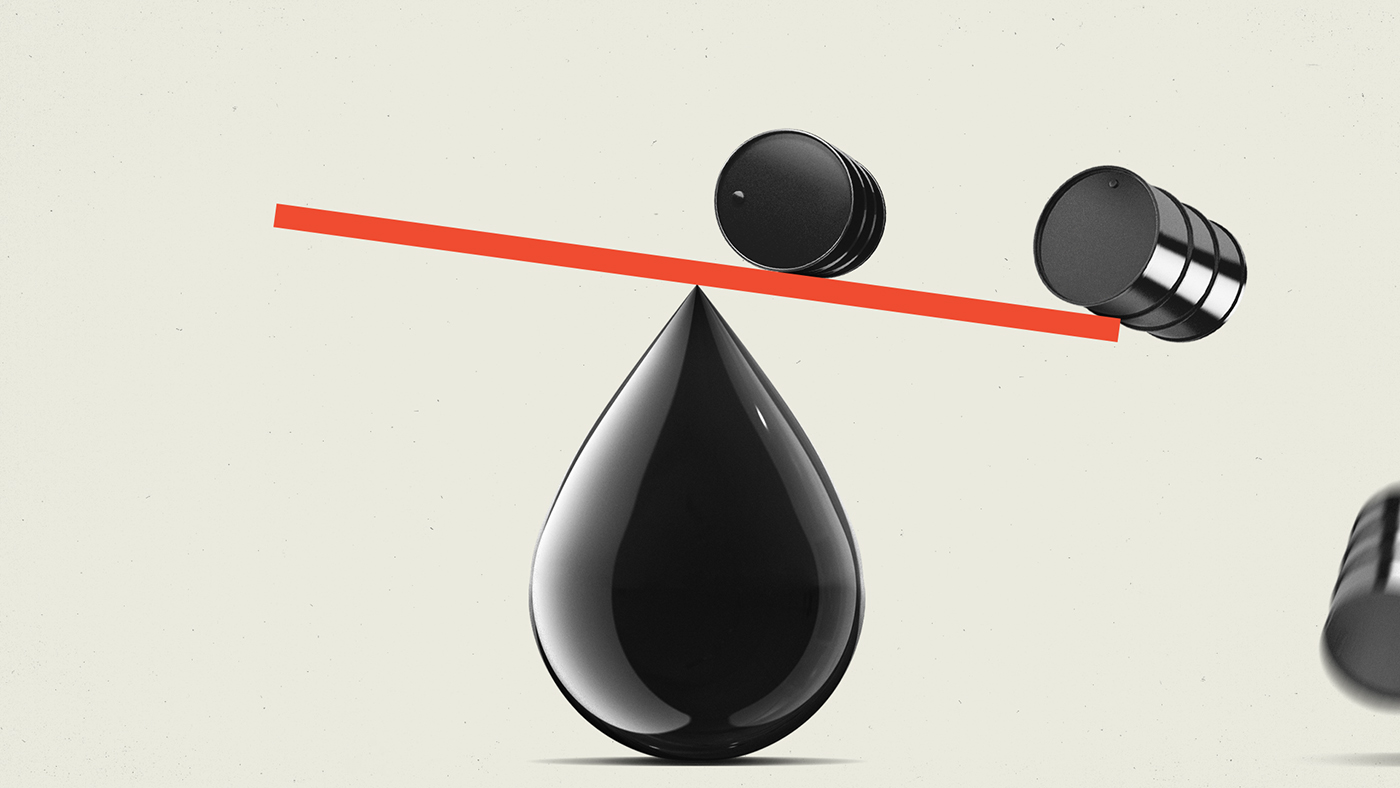Keystone Pipeline leaks 210,000 gallons of oil
Operators TransCanada say leak is ‘completely isolated’, but officials may decide not to grant permit for second pipeline

A free daily email with the biggest news stories of the day – and the best features from TheWeek.com
You are now subscribed
Your newsletter sign-up was successful
The Keystone Pipeline, the subject of a controversial extension plan, has been shut down after it leaked almost 210,000 gallons of oil in the US state of South Dakota.
TransCanda, the company that operates the pipeline, said the leak was “completely isolated within 15 minutes and emergency response procedures were activated” as soon as it was discovered on Thursday morning. Officials are investigating the cause.
The spill occurred just southeast of the small town of Amherst in northeast South Dakota, and is the largest leak from the Keystone Pipeline to date.
The Week
Escape your echo chamber. Get the facts behind the news, plus analysis from multiple perspectives.

Sign up for The Week's Free Newsletters
From our morning news briefing to a weekly Good News Newsletter, get the best of The Week delivered directly to your inbox.
From our morning news briefing to a weekly Good News Newsletter, get the best of The Week delivered directly to your inbox.
Brian Walsh, an environmental scientist manager at the South Dakota department of environment and natural resources, told The Guardian that “officials do not believe the leak affected any surface water bodies or threatened any drinking water systems from the spill on to agricultural land”.
For TransCanada, however, the timing of the spill may prove problematic. The Calgary-based firm is hoping to secure a permit for a long-delayed sister pipeline called Keystone XL. On Monday, the Public Service Commission in Nebraska will decide whether or not to grant a permit for the second pipeline, the Washington Post reports.
Keystone XL has been the subject of controversy ever since it was proposed almost a decade ago, provoking “persistent opposition from environmental groups, American Indian tribes and some landowners”, says CBS.
Former US President Barack Obama had rejected all plans for Keystone XL, but Donald Trump issued a federal permit approving the project in March, fulfilling a campaign promise.
A free daily email with the biggest news stories of the day – and the best features from TheWeek.com
The Canadian government has also given the go-ahead, as have the Canadian provinces of Alberta and Saskatchewan and the US states of Montana and South Dakota. All eyes are now on Nebraska's next move, as the extension will not be possible without its approval.
Nebraska - on paper - has good cause to be sceptical about the pipeline. “If this spill had happened along the proposed route in Nebraska, it would be absolutely devastating,” Brian Jorde, a lawyer representing Nebraska landowners opposed to Keystone XL, told Reuters. “Their proposed route is within a mile of thousands of water wells.”
Although environmental concerns cannot legally influence Monday’s decision, as the Keystone XL pipeline has already been issued an environmental permit, many anti-Keystone campaigners called for a rethink.
-
 Health insurance: Premiums soar as ACA subsidies end
Health insurance: Premiums soar as ACA subsidies endFeature 1.4 million people have dropped coverage
-
 Anthropic: AI triggers the ‘SaaSpocalypse’
Anthropic: AI triggers the ‘SaaSpocalypse’Feature A grim reaper for software services?
-
 NIH director Bhattacharya tapped as acting CDC head
NIH director Bhattacharya tapped as acting CDC headSpeed Read Jay Bhattacharya, a critic of the CDC’s Covid-19 response, will now lead the Centers for Disease Control and Prevention
-
 Why is the world so divided over plastics?
Why is the world so divided over plastics?Today's Big Question UN negotiations on first global plastic treaty are at stake, as fossil fuel companies, petrostates and plastic industry work to resist a legal cap on production
-
 Greenpeace, Energy Transfer and the demise of environmental activism
Greenpeace, Energy Transfer and the demise of environmental activismThe Explainer Court order forcing Greenpeace to pay $660m over pipeline protests will have 'chilling' impact on free speech, campaigners warn
-
 Cop28: is UAE the right host for the climate summit?
Cop28: is UAE the right host for the climate summit?Today's Big Question Middle East nation is accused of 'pushing for a green world that can still have its oil'
-
 Guyana: the epicentre of oil 'arms race'
Guyana: the epicentre of oil 'arms race'Under the Radar The Stabroek oil block is growing the nation's economy - but is hotly contested
-
 Rosebank oil field: pragmatism over future prospects?
Rosebank oil field: pragmatism over future prospects?Talking Point Green campaigners decry 'morally obscene' opening of new oil fields while trying to cut emissions
-
 Could we actually ‘just stop oil’?
Could we actually ‘just stop oil’?In Depth Disrupting sporting events is becoming Just Stop Oil’s ‘signature form of protest’
-
 Has the world finally reached ‘peak oil’?
Has the world finally reached ‘peak oil’?Today's Big Question Experts think the shift to clean energy is quickening but one says we should take the forecast with ‘a boulder of salt’
-
 Major incident declared after oil leak in Poole
Major incident declared after oil leak in PooleSpeed Read Swimmers in Dorset beauty spot warned not to enter Europe’s largest natural harbour